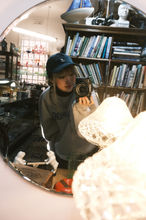I am Zhenyang ZHAO

When I was in elementary school, my grandmother forbade me from watching more cartoons and dramas, so I spent most of my time watching Animal World and Frozen Planet on television. As a child, I was captivated by the scenes filmed for the program. There is a feeling that the lens is my eyes and the world is at my feet, so I enjoy watching documentaries during that time. As I grew older and watched more documentaries, I realized that they are not only about animals and plants, the global environment, or my country's massive humanities documentaries such as "A Bite of China." Many directors/photographers of independent documentaries are not professional film/television talents, and they no longer rely on television stations for a living. They represent a broader range of social classes, including teachers, attorneys, and migrant workers. The documentary serves as a platform for them to convey their observations, criticisms, and personal perspectives on society. I enjoy exploring the unknown and have an adventurous spirit; when I see a person on the screen in a documentary, they are truly engaged with a person experiencing actual events. What a privilege it is to have had that experience. I would also like to be guided by a democratic spirit and a desire to get to the bottom of the truth, regardless of the situation being investigated or the story being told. In a world plagued by Fake News and attention-seeking product influencers, it is more crucial than ever to have insights based on actual events and actions. According to Alfred Hitchcock, the Master of Suspense, documentaries are the narrative-driven visual documentation of the real world: "In narrative films, the director is God; in documentary films, God is the director." I have viewed a ten-year-long documentary that was quickly banned by the Chinese government upon its release. Miners, Groom, Pneumoconiosis is documentary cinema at its purest and most unfiltered. This is a depressing documentary about people who have been left behind by the government and are forced to live in crippling poverty. I can see why the Chinese government banned this film shortly after its release, as it does not portray the party in the most favourable light. There is no longer a public independent documentary film festival in China, and everything appears to have returned to the 1990s. Everyone is only permitted to watch movies in private or at home, and they dare not write reviews to communicate with one another. Although some people continue to produce documentaries, the government attempts to "convert" them to its system. I wish to use documentary filmmaking to reflect, document, and react to the times. The documentary leads me to put my feet on the real land. The most important aspect of the documentary, in my opinion, is that it reminds me of the existence of reason; it informs me that this occurred around me, in my neighbourhood, city, country, and planet, and that my conscience and sense of justice are unavoidable.
Documentary films are an in-depth and informative resource that provides an ideal forum for discussion. They serve as potent tools for bringing important topics to the forefront in a captivating manner that also sparks conversation and sometimes social movements. The German director Rudolph Herzog once stated that if he opened a film school, the initial admission requirement would be a 5,000-kilometer hike. These 5,000 kilometres of experience will fill a notebook thicker than a five-year film school education. According to him, film skills have never been an issue, but life experience is a more crucial requirement. These experiences will be diametrically opposed to theoretical knowledge because the cinematic theory is the antithesis of passion. Typically, a textbook on documentary creation is about 500 pages long, covering everything from the history of the genre to the language of the screen to the fundamental techniques of recording and lighting. However, I do not believe it is necessary to begin creating after mastering all the textbook's knowledge points. After reading the first chapter of the book, if I have the desire to make a documentary and something to say to the world, I can pick up the equipment and begin filming.













